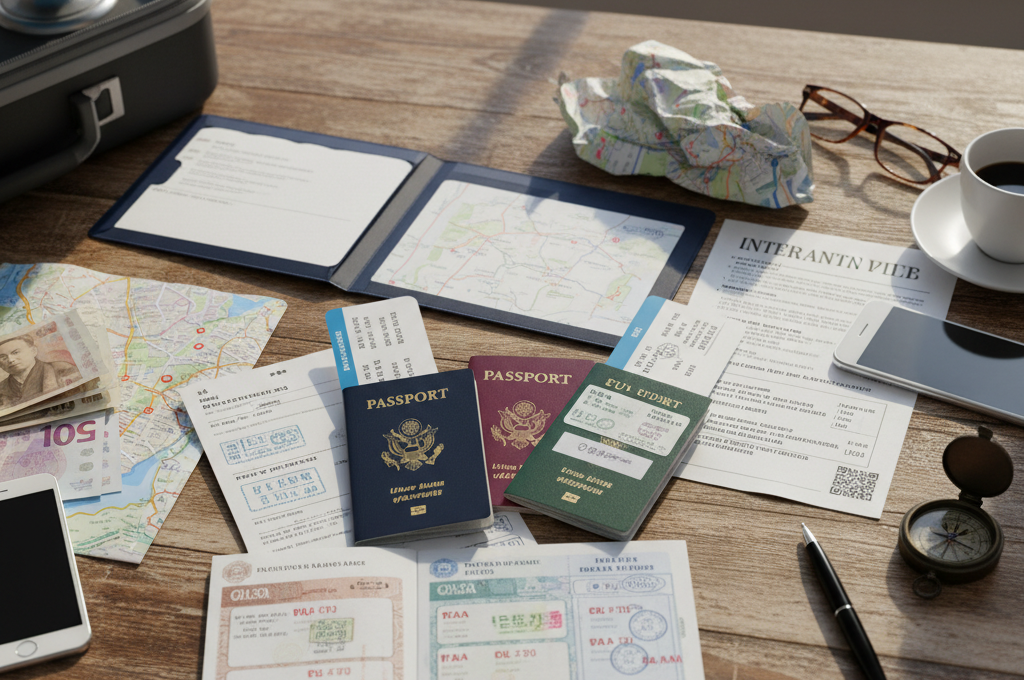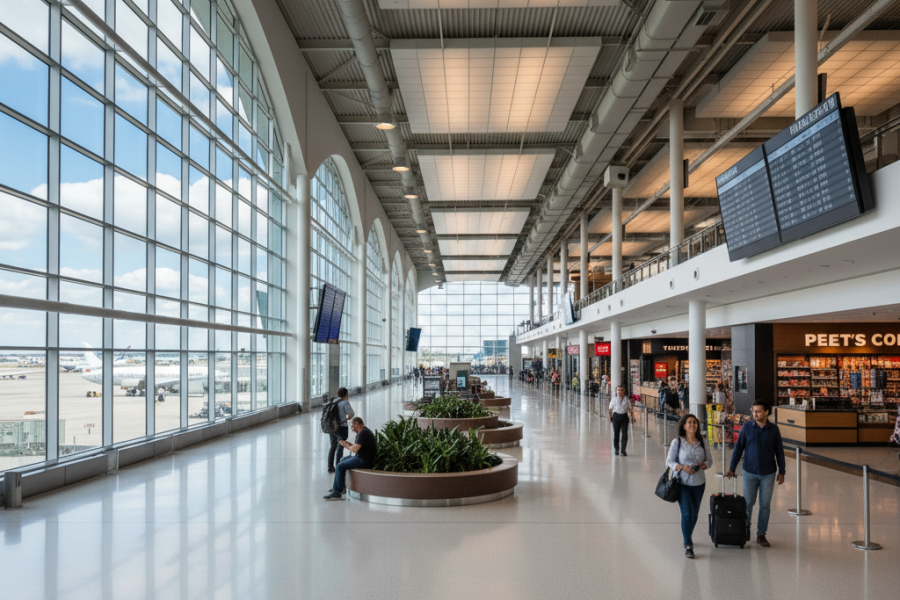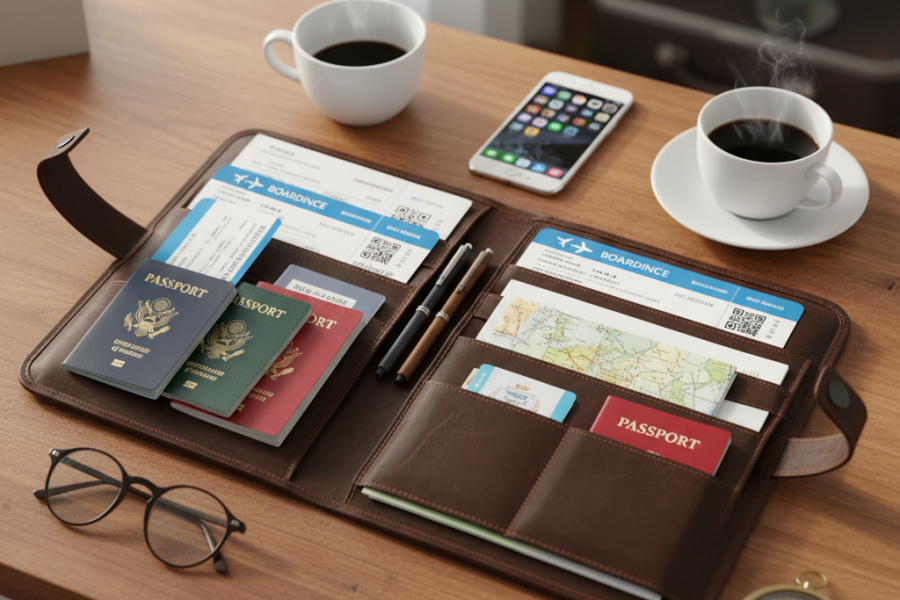Essential Documents for Air Travel in 2026
As global travel becomes smoother and more digital, it’s easy to assume paperwork is no longer important. But in reality, the list of air travel documents you need in 2026 is more crucial than ever. Whether you’re flying domestically or internationally, having the right documents ready can save you from delays, missed flights, or even denied boarding.
This guide breaks down all the must-have documents you should carry before heading to the airport — so your journey stays stress-free from start to finish.
1. Passport – Your Primary Identity for International Travel
A valid passport remains the most essential document for any international journey.
- Make sure it has at least 6 months validity from your travel date
- Check that your passport isn’t damaged
- Keep photocopies and digital copies
Airlines in 2026 still follow strict passport verification rules, so double-checking its validity saves you from last-minute issues.
2. Visa or e-Visa – Entry Permissions That Matter
Depending on your destination, you may need:
-
Traditional visa
-
e-Visa
-
Visa-on-arrival approval letter
With many countries updating their entry requirements, carrying the right visa document is essential. Always print a copy even if it’s digital — immigration officers sometimes ask for physical proof.
3. Flight Tickets or E-Ticket Confirmation
Your e-ticket contains important details like PNR, flight number, and terminal information.
- Take a screenshot
- Save a PDF copy
- Keep the email handy
Airline counters often ask to view it before issuing boarding passes.
4. Travel Insurance – A Must-Have in 2026
Many countries now recommend or require insurance for entry. Your policy should cover:
- Medical emergencies
- Missed flights
- Lost baggage
- Trip cancellation
Having this among your air travel documents is incredibly useful during unexpected situations.
5. Accommodation Proof
Hotels, Airbnb confirmations, or package details must be ready for immigration checks. Some countries deny entry without a confirmed stay.
- Carry printouts
- Keep booking emails accessible
- Save offline copies
6. Proof of Funds – Required by Several Countries
To ensure you can support your stay, immigration may ask for:
-
Bank statements
-
Credit card limits
-
Cash declarations
-
Employment letter
This is especially important for first-time international travellers.
7. Travel Itinerary – Helps Speed Up Immigration
A simple itinerary includes:
-
Cities you’ll visit
-
Dates
-
Activities
-
Internal flights
Immigration officers appreciate clarity, and having an itinerary makes your entry smoother.
8. Digital IDs for Domestic Air Travel
For domestic flights in many countries, digital identity documents are now accepted. Examples include:
-
DigiLocker ID (India)
-
Digital driver’s license
-
QR-based identity apps
Still, always have at least one physical ID as backup.
9. Vaccination Certificates (If Required)
While most countries have relaxed COVID rules, some destinations still require:
-
COVID-19 vaccine certificate
-
Yellow fever certificate (for African or South American routes)
Always check the latest government requirements.
10. Extra Copies of All Documents — Printed & Digital
This is the most underrated but essential habit.
- Keep a folder with printouts
- Store digital copies in your phone + cloud
- Share with a trusted family member
If anything gets lost, you’re still safe.
Conclusion: Travel Smart with the Right Documents
Carrying the correct air travel documents ensures your journey remains smooth, stress-free, and delay-free. In 2026, travel is more digital, but documentation remains essential for identity verification, immigration, and safety.
Good preparation doesn’t just prevent problems — it helps you travel with confidence.
And if you want to make your airport experience even easier, don’t miss our guide on why arriving early for international travel matters.






Leave a Comment